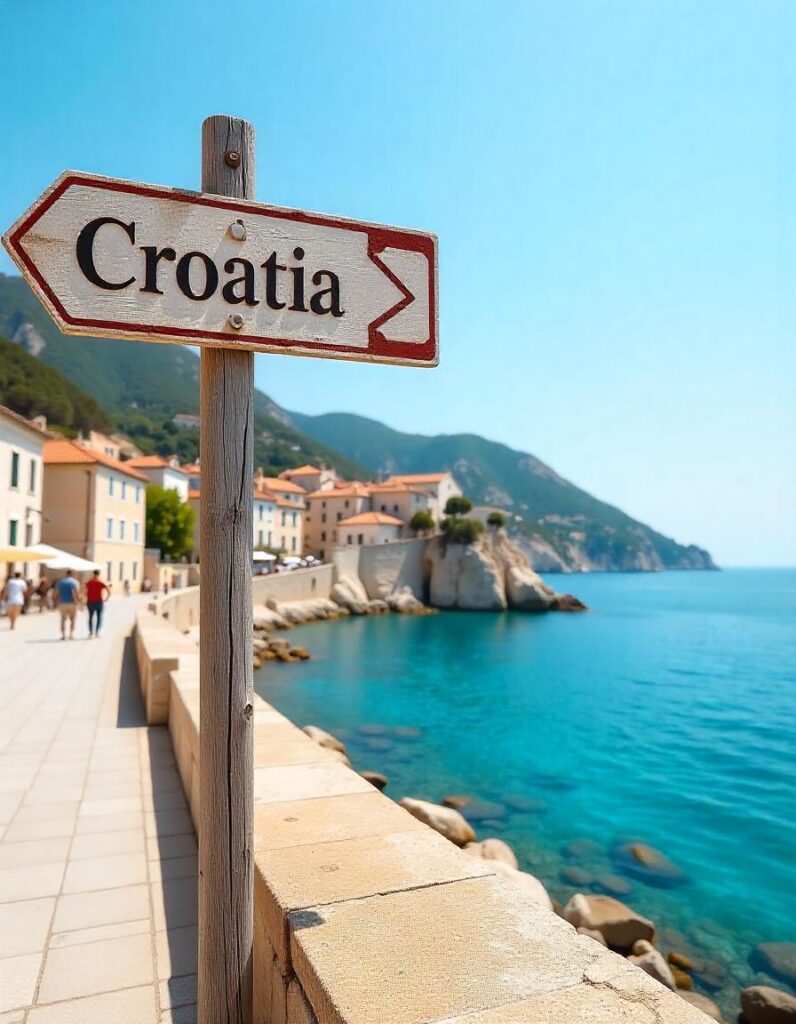From Albanian to Zulu 24/7

CROATIAN TRANSLATION SERVICES
At worldLINK, we are dedicated to providing accurate, high-quality, and competitively priced Croatian translation services for a wide range of clients, from global corporations and local businesses to individuals dealing with immigration, legal, or academic documents. Our translations are customized to reflect the specific linguistic and cultural nuances of the Croatian language, ensuring that each project is delivered with precision and efficiency. worldLINK bridges language and culture seamlessly to support both personal and business needs.
worldLINK CROATIAN TRANSLATION SERVICES
CROATIAN DOCUMENT TRANSLATION
CROATIAN INTERPRETATION
CROATIAN SOFTWARE AND WEBSITE LOCALIZATION

CROATIAN LANGUAGE IN THE WORLD
With over 5 million native speakers, Croatian is the official language of Croatia and is also spoken in parts of Bosnia and Herzegovina, Serbia, and among the Croatian diaspora worldwide. Croatian is a South Slavic language and is written in the Latin script, with its own distinctive vocabulary, expressions, and grammar. As Croatia continues to expand its role in the European Union and international markets, Croatian is increasingly significant for business, tourism, and cultural exchanges in Central and Southeastern Europe.
CHALLENGES IN CROATIAN TRANSLATION
Translating Croatian comes with unique challenges due to its complex grammar, noun cases, and vocabulary. Croatian has seven grammatical cases, which impact sentence structure and word endings, making precise translation essential. Additionally, regional dialects within Croatia introduce subtle differences in vocabulary and expressions that need to be carefully adapted for accurate localization. Understanding these linguistic nuances, as well as cultural references, is vital for ensuring translations resonate with the target audience.
At worldLINK, our experienced Croatian translators are well-versed in these linguistic and cultural subtleties. They are specialized across various industries, ensuring that each translation is technically accurate and culturally meaningful for Croatian-speaking audiences.


worldLINK CROATIAN INTERPRETERS
Our quality control process combines advanced technology with a client-centered approach, ensuring cost-effective, accurate, and timely solutions. Our three-phase process—project analysis, production, and post-production—ensures the highest quality for each Croatian translation project. Supported by specialized software and an online project management system, worldLINK provides efficient services that meet specific client needs. Our expert team is dedicated to delivering innovative, accurate translations of the highest quality.
INDUSTRIES IN CROATIA
Croatia has a diverse economy with several key industries driving growth, trade, and investment. Here are some of the main industries in Croatia:
- Tourism and Hospitality: Tourism is one of Croatia’s most vital industries, attracting millions of visitors each year to its stunning Adriatic coast, historic cities, and natural parks. Cities like Dubrovnik, Split, and Zagreb, as well as UNESCO World Heritage Sites, are popular destinations. This industry is a significant source of revenue and employment, supporting a range of hospitality services and businesses.
- Agriculture and Food Processing: Agriculture plays a central role in Croatia’s rural economy, producing olives, grapes, fruits, vegetables, and dairy products. The country is known for its high-quality wine and olive oil production, which are increasingly popular export items. Food processing, particularly of meat and dairy products, is another essential sector, supplying both domestic and regional markets.
- Shipbuilding: Croatia has a long-standing tradition in shipbuilding, with major shipyards along the Adriatic coast. Shipbuilding and repair services cater to both cargo vessels and luxury yachts, supporting Croatia’s strong reputation in maritime industries. The industry is a key employer and export contributor, particularly in coastal areas.
- Renewable Energy and Power Generation: The energy sector is growing, with a focus on renewable sources like wind, solar, and hydropower. Croatia’s commitment to environmental sustainability aligns with European Union green energy goals, and investments in renewable energy projects are helping to diversify the country’s energy mix.
- Pharmaceuticals and Healthcare: Croatia has a well-developed pharmaceutical industry, producing generic drugs and healthcare products for both domestic and international markets. The healthcare sector is modern and growing, with a focus on medical tourism, particularly in cities like Zagreb and Rijeka, where high-quality medical services attract patients from neighboring countries.
- Construction and Real Estate: Urban development and infrastructure projects are essential to Croatia’s growth, especially in major cities and tourist areas. The real estate sector is expanding to meet the demand for residential, commercial, and tourism-related properties, attracting both local and foreign investors.
- Information Technology (IT) and Software Development: The Croatian IT sector is growing rapidly, with companies specializing in software development, IT outsourcing, and cybersecurity. Croatia’s tech talent and proximity to European markets make it an appealing destination for tech investment, with hubs in cities like Zagreb and Rijeka.
- Textiles and Apparel: Croatia has a well-established textile and apparel industry, producing clothing and accessories for both domestic and export markets. The sector includes both large manufacturers and smaller artisanal producers, catering to high-quality apparel and traditional Croatian designs.
- Automotive Parts and Machinery: Croatia’s manufacturing sector includes automotive parts and industrial machinery production. Components manufactured in Croatia are supplied to European automotive and machinery industries, contributing to job creation and exports.
- Wine Production: Croatia is known for its high-quality wine production, with a winemaking tradition that spans centuries. The country produces unique varieties, including Malvazija and Plavac Mali, which are popular domestically and are increasingly recognized internationally. The wine industry supports both tourism and agricultural exports.
